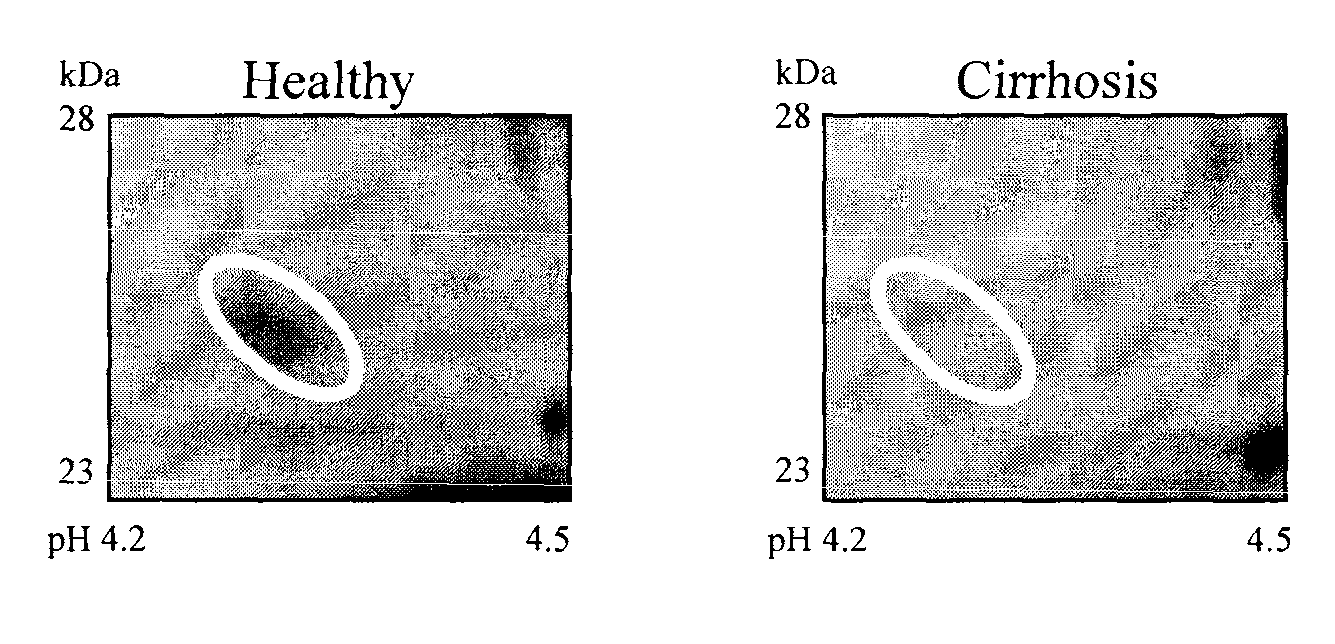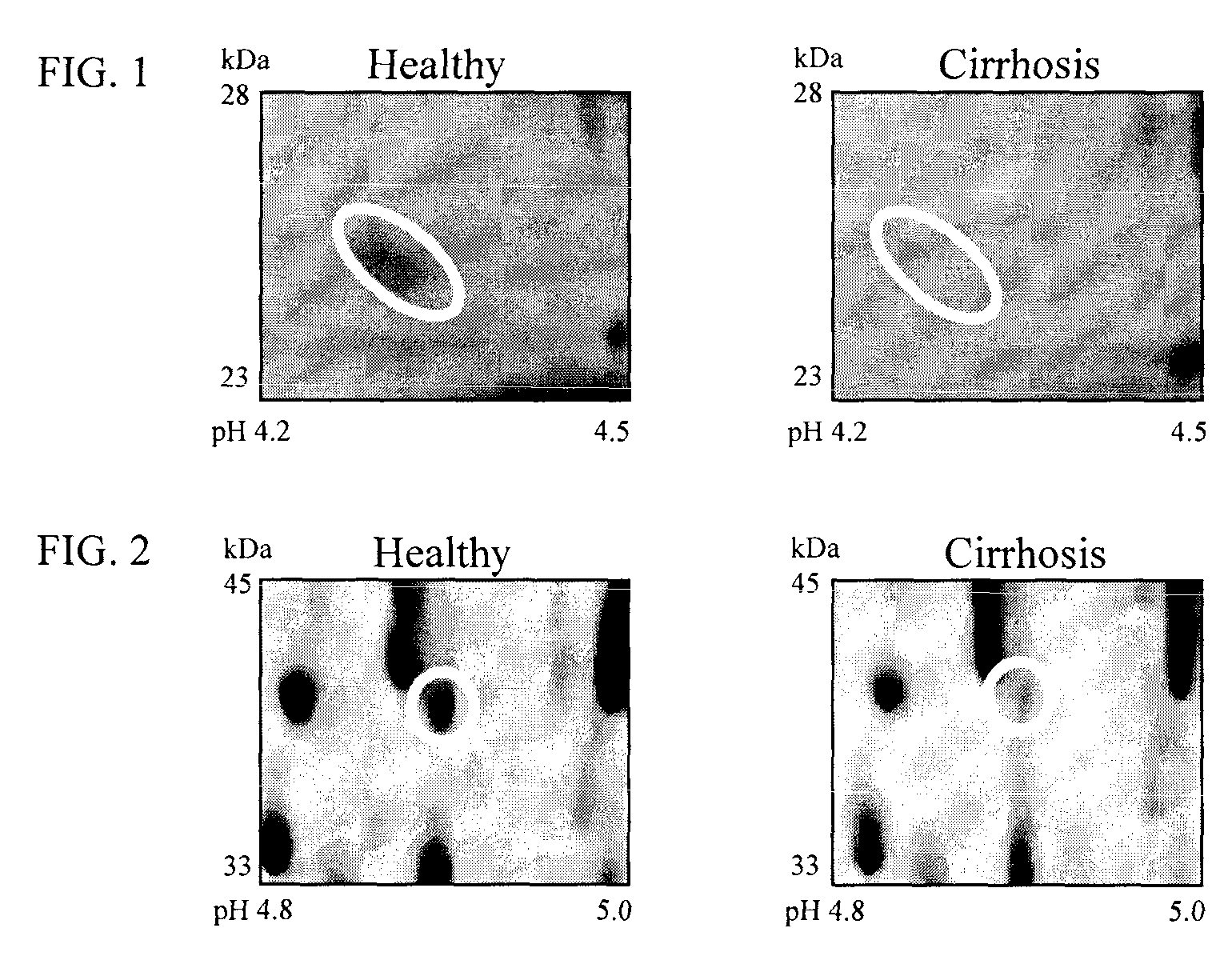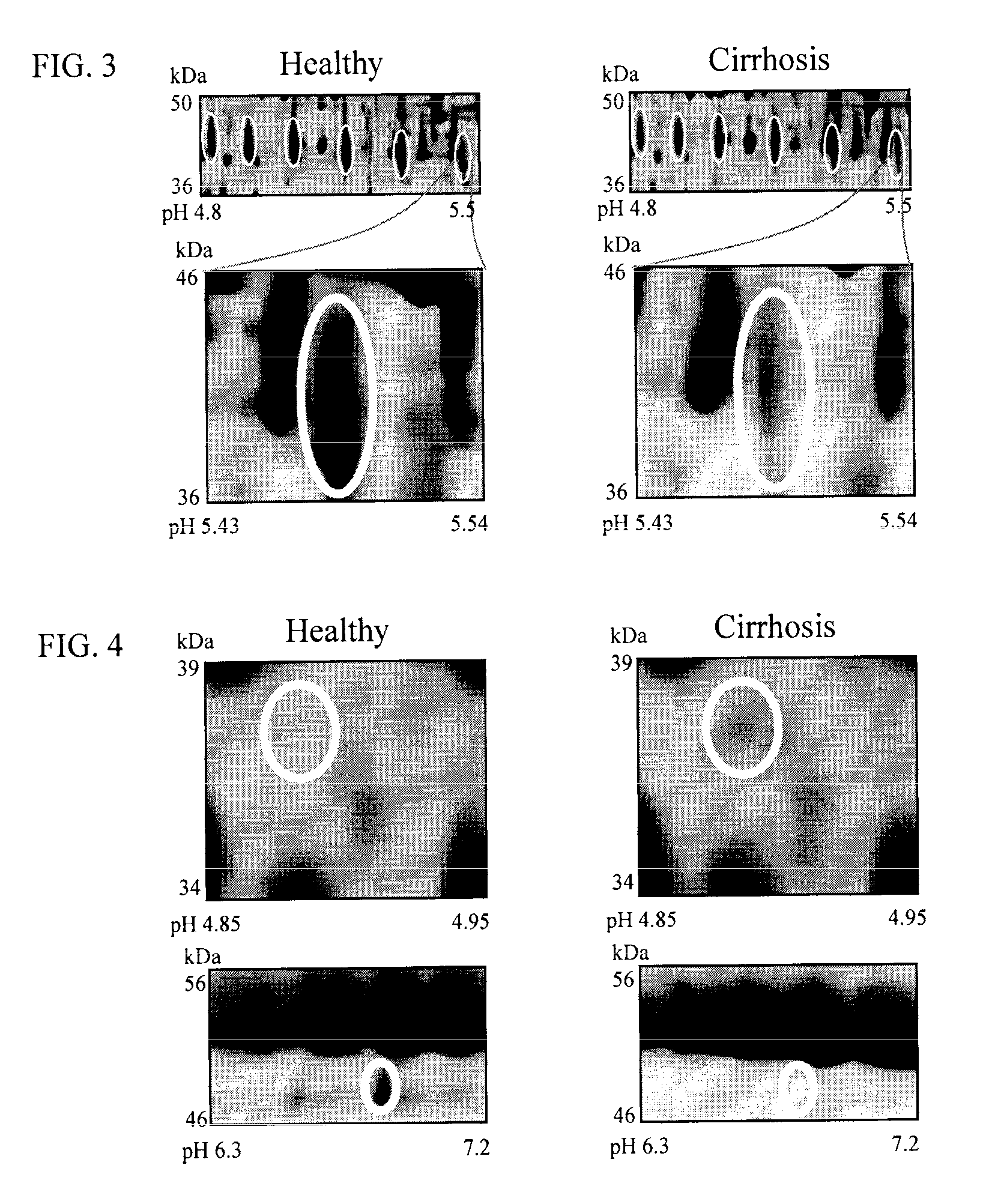Clinical diagnosis of hepatic fibrosis using a novel panel of low abundant human plasma protein biomarkers
a human plasma protein and fibrosis technology, applied in the field of clinical diagnosis of hepatic fibrosis using a novel panel of low-abundance human plasma protein biomarkers, can solve the problems of unreliable biopsy, patient discomfort, pain, bleeding,
- Summary
- Abstract
- Description
- Claims
- Application Information
AI Technical Summary
Benefits of technology
Problems solved by technology
Method used
Image
Examples
example 1
Two Dimensional Polyacrylamide Gel Electrophoresis (2D-Page)
[0111]To identify biomarkers for HCV-induced hepatic scarring, plasma samples of healthy individuals and HCV-induced cirrhosis patients (6 individuals in each group) were analyzed in a 2D-PAGE-based proteomics study. All plasma samples were collected in P100 tubes (BD, Oxford, UK). These P100 plasma tubes were chosen since, unlike any other blood collection tube, they contain proprietary protein stabilizers that solubilize immediately as blood is collected which enhances recovery and preservation of proteins making them ideal for proteome analysis and biomarker discovery. Unlike WO / 2008 / 031051 where serum from patients with varying degrees of hepatic fibrosis were analysed, this invention only focuses on differentially expressed proteins between samples from healthy individuals and cirrhotic patients. This approach was adopted since all differentially expressed proteins identified previously in mild and moderate fibrosis we...
example 2
Differential Image Analysis and Protein Identification
[0112]The two dimensional array of spots generated were compared between normal and cirrhosis plasma samples by computer-aided image analysis. Scanned images of all 2D-PAGE gels were analysed by computer-aided image analysis as described by Gangadharan et al., (2007), Clin. Chem., 53, 1792. Differentially expressed changes that were greater than or equal to 2-fold different were considered to be significant. A total of 57 differerentially expressed features were excised, digested with trypsin, and analyzed by mass spectrometry as described by Gangadharan et al., (2007), Clin. Chem., 53, 1792.
example 3
Identification of Human Plasma Biomarkers for Hepatic Fibrosis Due to Cirrhosis
[0113]Differential image analysis revealed initial evidence for potential plasma biomarkers. See FIGS. 1-4. This analysis showed that expression of lipid transfer inhibitor protein, zinc-alpha-2-glycoprotein, beta haptoglobin at pH 5.46-5.49, haptoglobin-related protein, apolipoprotein C-III, apolipoprotein E, C4b-binding protein beta chain, paraoxonase / arylesterase 1, retinol-binding protein 4, afamin, alpha-2-HS-glycoprotein, corticosteroid-binding globulin, leucine-rich alpha-2-glycoprotein and fibrinogen gamma chain was decreased in cirrhotic serum, whereas expression of intact complement C3dg, immunoglobulin J chain, sex hormone-binding globulin, 14-3-3 protein zeta / delta, adiponectin and alpha-1-antitrypsin increased. Post-translational modification of the glycoprotein hemopexin was also observed.
[0114]Fibrosis biomarkers already mentioned in WO / 2008 / 031051 were also identified: increase in CD5 anti...
PUM
| Property | Measurement | Unit |
|---|---|---|
| temperature | aaaaa | aaaaa |
| temperature | aaaaa | aaaaa |
| Tm | aaaaa | aaaaa |
Abstract
Description
Claims
Application Information
 Login to View More
Login to View More - R&D
- Intellectual Property
- Life Sciences
- Materials
- Tech Scout
- Unparalleled Data Quality
- Higher Quality Content
- 60% Fewer Hallucinations
Browse by: Latest US Patents, China's latest patents, Technical Efficacy Thesaurus, Application Domain, Technology Topic, Popular Technical Reports.
© 2025 PatSnap. All rights reserved.Legal|Privacy policy|Modern Slavery Act Transparency Statement|Sitemap|About US| Contact US: help@patsnap.com



